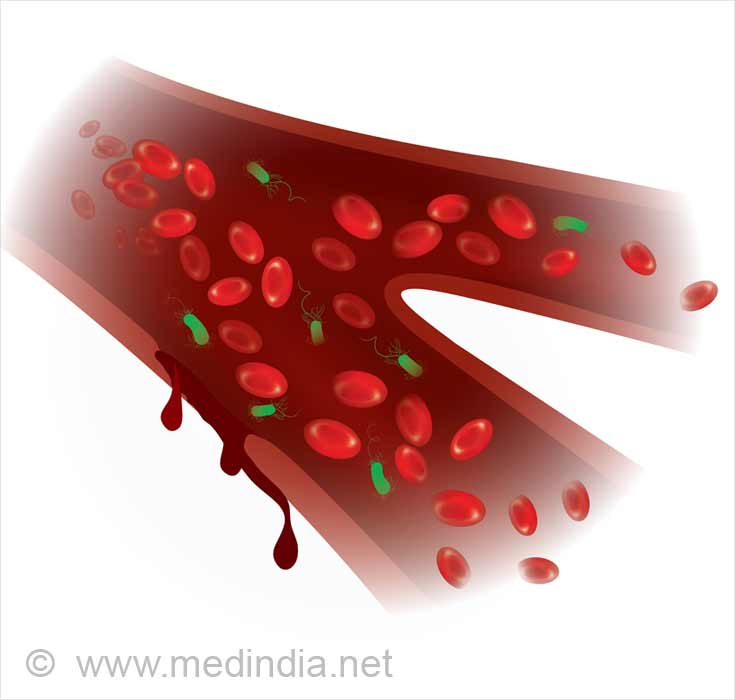- Harrison’s Principles of Internal Medicine 17th edition.
About
Septicemia is a serious illness wherein a patient develops symptoms due to the presence of bacteria or their toxins in the blood.
Bacteria and other organisms that cause infection in a particular part or organ of the body can invade blood vessels and enter the blood. If the bacteria in the blood do not result in any symptoms, the condition is called bacteremia. Bacteremia resulting in symptoms is called septicemia.

When bacteria or other infective microbes enter the body, the body mounts an immune reaction and tries to kill the invading microbes. Due to this reaction, the patient shows features like increase or decrease in temperature, increase or decrease in white blood cell counts and increase in heart rate and respiratory rate. These features constitute the systemic inflammatory response syndrome (SIRS). A patient with an infection showing a SIRS is said to have sepsis.
Sepsis can lead to complications like organ dysfunction and very low blood pressure. If the patient suffers from organ dysfunction away from the site of infection, the patient is said to be suffering from severe sepsis. If the patient suffers from low blood pressure which does not respond to intravenous fluids, the patient suffers from septic shock.
Septicemia can be caused by bacteria, viruses and fungi. People with decreased immunity or those who have undergone major surgical procedures or trauma are at increased risk for developing septicemia or sepsis.
Symptoms of septicemia may be caused by the primary infection that led to the septicemia, due to the sepsis per se and/or due to complications of sepsis. Symptoms and signs of septicemia include an increase or decrease in temperature and respiratory rate, an increase in heart rate, confusion and disorientation, and skin lesions.
Septicemia is diagnosed using blood culture and culture of the infected tissues. Other tests like urine test, imaging studies like x-ray, ultrasound, CT scan and MRI help to detect the source of infection and the extent of complications.
Septicemia could result in complications like septic shock, multiple organ dysfunction, adult respiratory distress syndrome (ARDS) and disseminated intravascular coagulation (DIC).
Septicemia is treated with intravenous antibiotics in a hospital setting. Other supportive measures include intravenous fluids, oxygen, ventilatory support and maintenance of nutrition. Often, patients with serious complications do not recover; hence patients with septicemia should be treated early in order to prevent complications.









